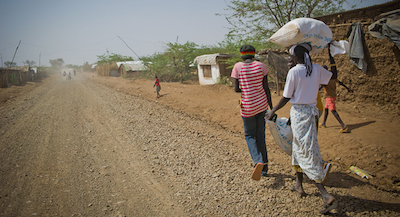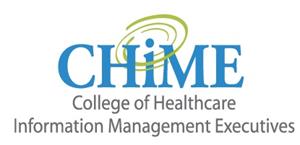News Clips
Why Giving Birth Is Safer In Britain Than In The US
At 11:58 pm this past June 25, Helen Taylor gave birth to her first baby, a boy, at West Suffolk Hospital in the east of England. At 11:59 pm, with 15 seconds to spare before midnight, his sister was born. The obstetrician and her team were pleased; the cesarean section was going smoothly, fulfilling Helen’s wish that her twins share a birthday...
- Login to post comments
Under ‘Observation,’ Some Hospital Patients Face Big Bills
In April, Nancy Niemi entered Vidant Medical Center in Greenville, N.C., with cardiac problems. She stayed four nights, at one point receiving a coronary stent. Then she went home, but felt faint and took several falls. Five days later, her primary care doctor sent her back to the hospital. This time, her stay lasted 39 days while physicians tried various medications to regulate her blood pressure. Though they eventually succeeded, Mrs. Niemi, 84, a retired insurance agent, had grown so weak that she could no longer walk...
- Login to post comments
Nigerian Inventor Creates Computer That Can Smell Explosives and Cancer Cells
Nigerian inventor Oshiorenoya Agabi has designed and developed a computer that can identify the smell of explosives and cancer cells through a combination of neurons and silicon. The Nigerian neuroscientist, who is based in Silicon Valley, unveiled his incredible invention at the TEDGlobal conference in Tanzania this week...
- Login to post comments
Harvey Evacuees Leave Their Belongings—and Health Records—Behind
Digitizing the world's medical records was supposed to make doctors' lives easier and patients' lives longer. But unlike banking and shopping, medicine has had a rough time transitioning to the new digital order. Because health care providers use different systems for their electronic health care records, it’s still difficult for a patient’s data to follow them through the medical ecosystem...
- Login to post comments
South Asia floods: Appeals for Help as Monsoon Rains Cause Havoc in India, Nepal, Bangladesh
Oxfam said its Bangladesh staff reported two-thirds of the country was under water and in some areas the flooding was the worst since 1988, creating an urgent demand for humanitarian supplies. Widescale flooding in an arc stretching across the Himalayan foothills caused landslides and washed away tens of thousands of homes and vast swathes of farmland. The UN said about 40 million had been affected...
- Login to post comments
PolyU Discovers a Newly Emerged Superbug -- Hyper-Resistant and Hypervirulent Klebsiella Pneumoniae
 The Partner State Key Laboratory of Chirosciences at the Department of Applied Biology and Chemical Technology (ABCT) of The Hong Kong Polytechnic University (PolyU) discovered a newly emerged superbug, hyper-resistant and hypervirulent Klebsiella pneumoniae, which may cause untreatable and fatal infections in relatively healthy individuals and will pose enormous threat to human health...
The Partner State Key Laboratory of Chirosciences at the Department of Applied Biology and Chemical Technology (ABCT) of The Hong Kong Polytechnic University (PolyU) discovered a newly emerged superbug, hyper-resistant and hypervirulent Klebsiella pneumoniae, which may cause untreatable and fatal infections in relatively healthy individuals and will pose enormous threat to human health...
- Login to post comments
Health Care Providers Can Use Design Thinking to Improve Patient Experiences
A hospital administrator recently talked to us about an issue that is all too common for patients: missed medical appointments. The story was about a woman named Mary (a pseudonym), a patient with a painful chronic condition who continually failed to keep her regular appointments. In an effort to better understand the problem at hand, the administrator tried to put herself in Mary’s shoes, and asked about her experience: Was there an issue with transportation? Did she need other appointment reminders aside from the paper letter mailed to her home and the standard phone call?...
- Login to post comments
HHS Called on to Eliminate Health Information Blocking
A coalition of healthcare stakeholders convened by Health IT Now called HHS and its departments to eliminate information blocking so that providers can effectively aggregate patient EHRs and advance interoperability. The letter from organizations including the American Academy of Family Physicians (AAFP), AMIA, DirectTrust, and athenahealth requested HHS issue a proposed rule that takes existing laws, standardization, patient health data access, and other complicating factors into consideration...
- Login to post comments
Hurricane Harvey: Responding to Public Health and Infectious Disease Threats
 The membership of the Infectious Diseases Society of America and the HIV Medicine Association stand with the individuals, families and communities affected by flooding in the aftermath of Hurricane Harvey, and urge care, preparation and precautions in confronting health impacts that may pose risks in the days and weeks ahead. We would like first to emphasize that while widespread disease outbreaks after flooding remain uncommon in the United States, hand hygiene, clean water, as well as access to medications will be essential for preventing and limiting the spread of infectious diseases during this time...
The membership of the Infectious Diseases Society of America and the HIV Medicine Association stand with the individuals, families and communities affected by flooding in the aftermath of Hurricane Harvey, and urge care, preparation and precautions in confronting health impacts that may pose risks in the days and weeks ahead. We would like first to emphasize that while widespread disease outbreaks after flooding remain uncommon in the United States, hand hygiene, clean water, as well as access to medications will be essential for preventing and limiting the spread of infectious diseases during this time...
- Login to post comments
How Can Chatbots Help Us Respond to Humanitarian Crisis?
 At the moment, The World Food Programme (WFP) and the wider humanitarian system are #FightingFamine in four countries. In Somalia, Yemen, North-Eastern Nigeria and South Sudan 20 million people are on the brink of starvation. Our recent study “At the Root of Exodus” found that high levels of food insecurity lead to higher levels of migration across borders; UNHCR estimates that there are 65.6 million people forcibly displaced worldwide. The stakes are high, we need all the information we can get...
At the moment, The World Food Programme (WFP) and the wider humanitarian system are #FightingFamine in four countries. In Somalia, Yemen, North-Eastern Nigeria and South Sudan 20 million people are on the brink of starvation. Our recent study “At the Root of Exodus” found that high levels of food insecurity lead to higher levels of migration across borders; UNHCR estimates that there are 65.6 million people forcibly displaced worldwide. The stakes are high, we need all the information we can get...
- Login to post comments
A Tale of Two Epidemics — HCV Treatment among Native Americans and Veterans
In light of ongoing debates about health care budgets and rising drug prices, a current public health crisis can provide useful insights. For patients who get their health care through two separate federal agencies, the hepatitis C virus (HCV) epidemic is unfolding in vastly different ways. In recent years, the Department of Veterans Affairs (VA) health care system has mounted a response to HCV that should be the envy of any health system, public or private. On the other hand, the Indian Health Service (IHS), an agency that serves American Indians and Alaska Natives, is struggling to meet the needs of its patients with HCV...
- Login to post comments
Urgent Supplies Through the Air
 Drones can do so much more than take photos and inspect cell phone towers. They can ferry critical supplies to hard-to-reach areas and drop off life-saving packages to disaster survivors. One company, Zipline International in San Francisco, is deploying unmanned aerial systems (UAS) to drop off lifesaving packages of blood in Rwanda—and is the world’s first national drone delivery service. Another company, Windhorse Aerospace in Wells, England, is developing a UAS intentionally designed for a one-way trip. The aircraft is made of combustible or even edible materials that can be taken apart by disaster survivors after it lands and used for fires or meals...
Drones can do so much more than take photos and inspect cell phone towers. They can ferry critical supplies to hard-to-reach areas and drop off life-saving packages to disaster survivors. One company, Zipline International in San Francisco, is deploying unmanned aerial systems (UAS) to drop off lifesaving packages of blood in Rwanda—and is the world’s first national drone delivery service. Another company, Windhorse Aerospace in Wells, England, is developing a UAS intentionally designed for a one-way trip. The aircraft is made of combustible or even edible materials that can be taken apart by disaster survivors after it lands and used for fires or meals...
- Login to post comments
If Things Weren’t Already Bad Enough, Houston Is About to Face a Public Health Nightmare
In the coming weeks and even months, residents of Houston and other parts of southern Texas hit hard by Hurricane Harvey will be faced with the public health disasters that can result from dirty floodwater and landslides. The natural disaster has ostensibly turned the city into a sprawling, pathogen-infested swamp...
- Login to post comments
CHIME and DirectTrust Announce Collaboration
 The College of Healthcare Information Management Executives (CHIME) and DirectTrust today announced they are collaborating to promote the universal deployment of the DirectTrust framework and health information exchange network as the common electronic interface for health information exchange across the U.S...
The College of Healthcare Information Management Executives (CHIME) and DirectTrust today announced they are collaborating to promote the universal deployment of the DirectTrust framework and health information exchange network as the common electronic interface for health information exchange across the U.S...
- Login to post comments
Sewage, Debris, Mosquitoes: Flood Waters Increase Health Risk for Harvey Victims
Tropical storm Harvey continues to threaten lives in Houston, where officials are focused on evacuating hospitals and securing life-saving emergency transportation, knowing they face long-term health threats. “Our number one priority now,” said Chris Van Deusen, a clearly frayed spokesperson for the Texas Department of State Health Services, is “to make sure hospital patients and those with medical needs are taken care of.”...
- Login to post comments